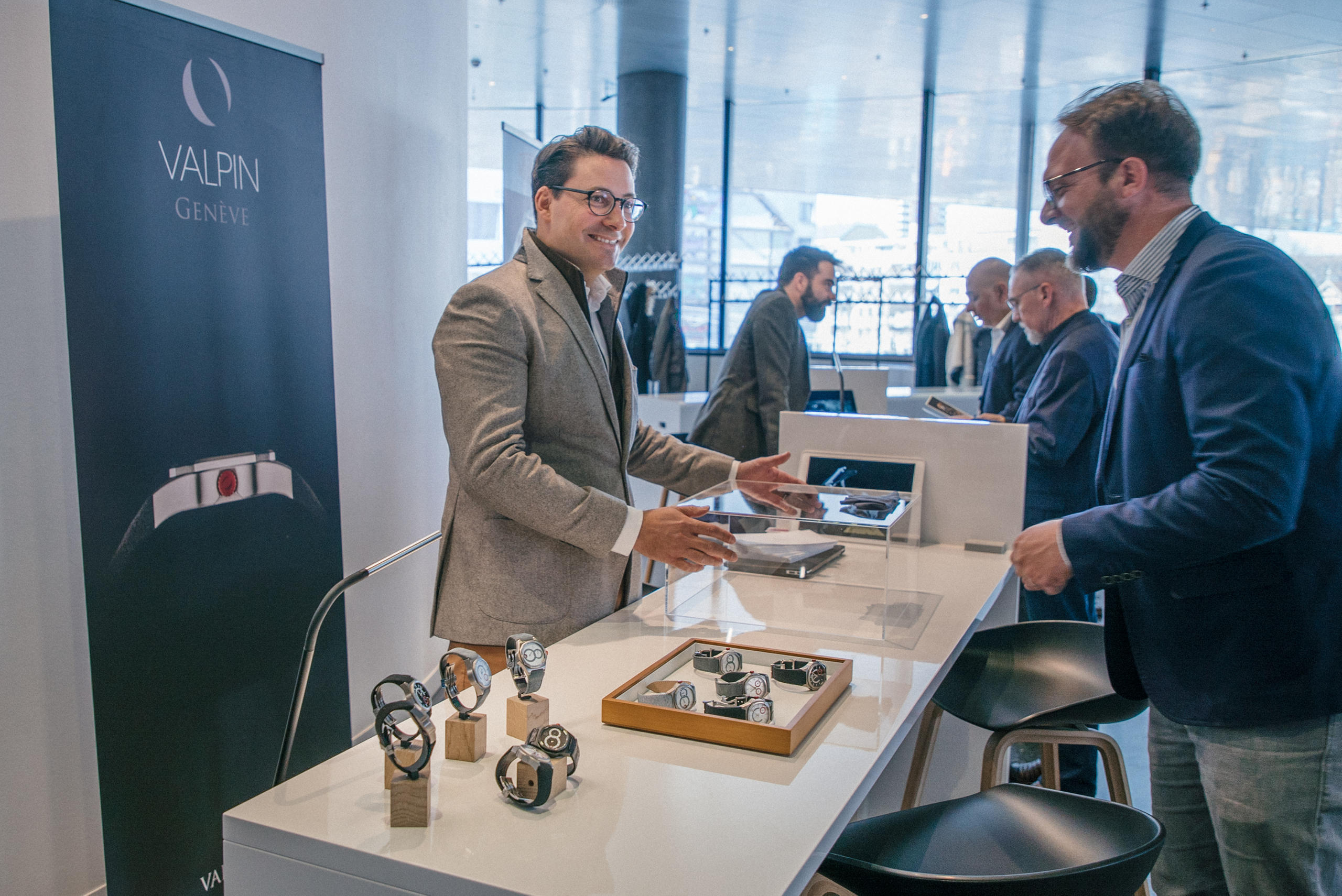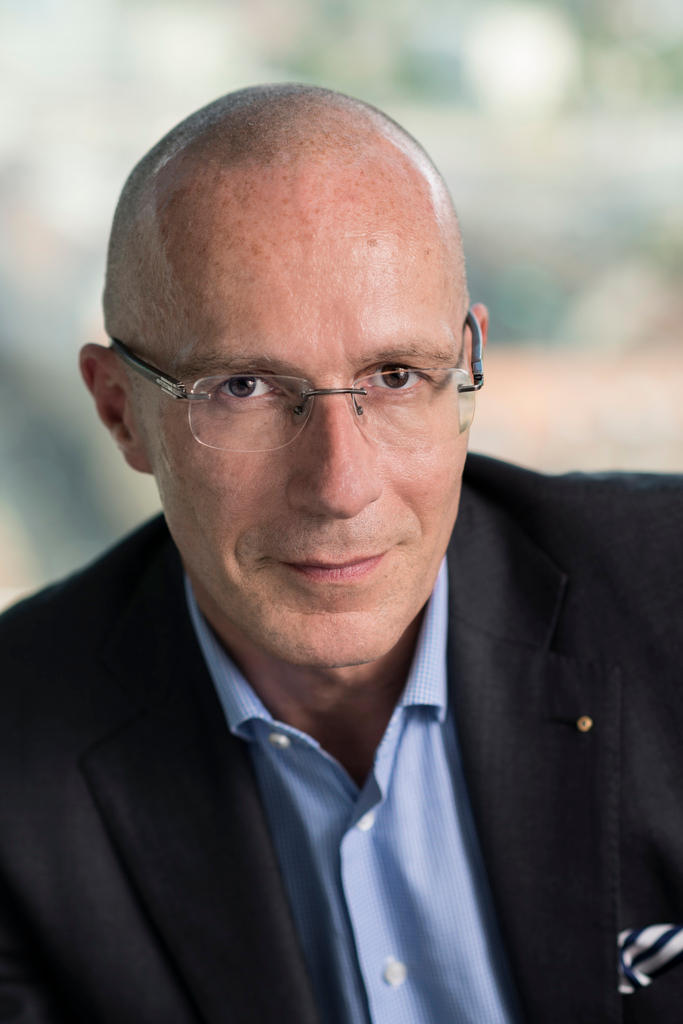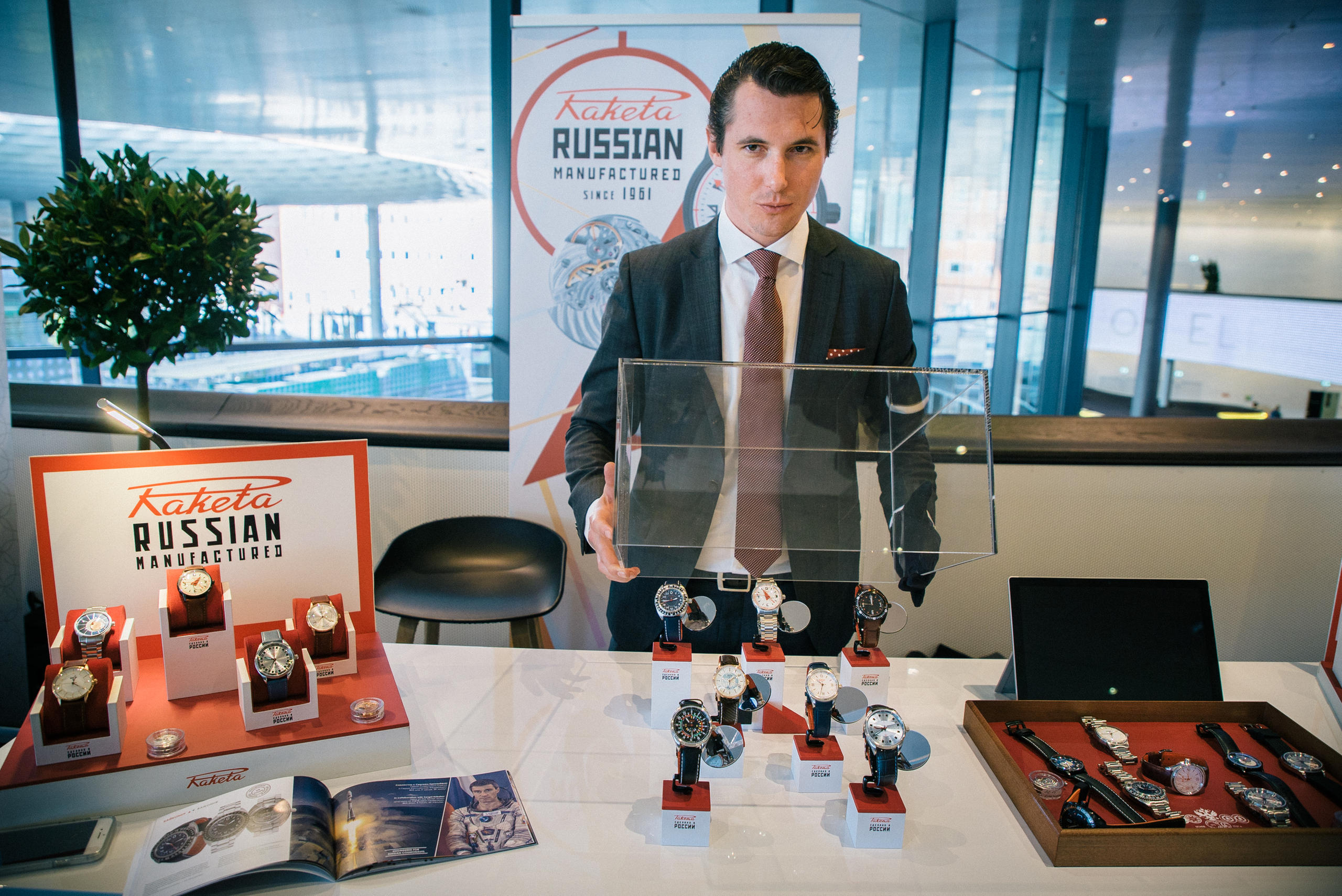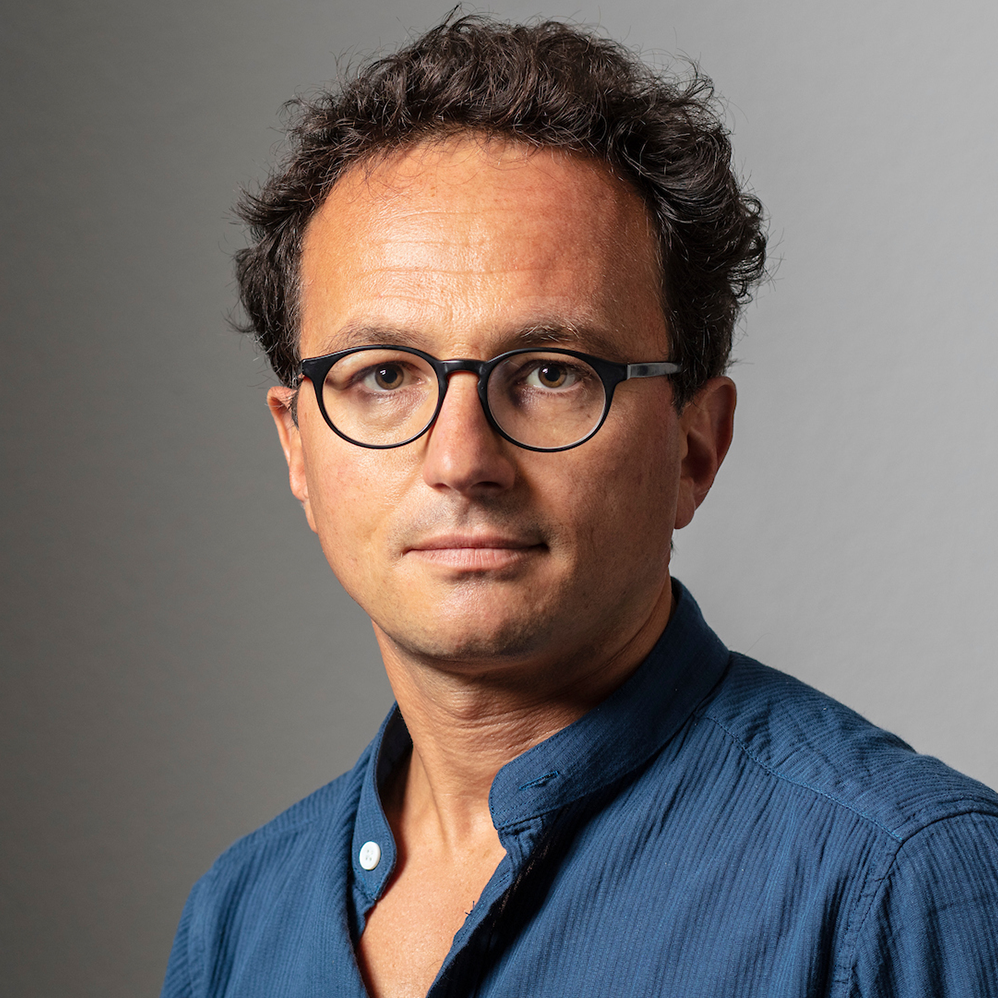
Start-ups out to conquer the watchmaking world

With several traditional watchmakers not in attendance, Baselworld has this year launched a platform to showcase about 20 industry start-ups. It's one of several measures set to boost a struggling event.
To survive, BaselworldExternal link needs to reinvent itself. The traditional watch and jewellery trade show, which closes its doors this year on Tuesday, has lost more than half of its exhibitors in the past two years. The departure of Swatch Group and its 18 brands sent shockwaves through Basel last year.
“I think we’ve hit the bottom with 500 exhibitors,” admits the fair’s news director Michel Loris-Melikoff.

If this edition of Baselworld has a transitional air, it should nevertheless prepare the ground for a total metamorphosis set for 2020.
“I’d like to make Baselworld a platform for communication and experimentation which really integrates all the players of the watchmaking industry: brands, suppliers, retailers, journalists, influencers, consumers and so on. It’s this mix which will make the fair interesting,” Loris-Melikoff told swissinfo.ch.
He says the strategy pursued by the previous management was “incomprehensible” regarding the watch contract manufacturing sector. For decades, the manufacturers of watch components and tools in the Jura region have been key pillars of the event, but they slammed the door on Baselworld due to excessively high prices and a lack of recognition on the part of the organisers.
The contract manufacturers created their own event in La Chaux-de-Fonds last year, held at the same time as Baselworld.
“I took my car and went to see them one by one in the hopes of convincing them to return to Basel the following year,” Loris-Melikoff says.
Watch incubator
In future, the Baselworld organisers also want to give a bigger stage to new faces in the industry. A collaboration with Swiss and French watchmaking schools is planned for 2020. This year, about 20 new businesses and watch-making start-ups benefited from a new offering called the Watch Incubator, allowing them to present their brands and benefit from international visibility at Baselworld.
Thanks to preferential rates – at just under CHF4,000 per exhibitor – the stands were booked in just 10 days.
“The feedback is so positive that we are already planning to set up a similar incubator for jewellery and precious stones next year,” says Loris-Melikoff
swissinfo.ch met three newcomers at the world’s largest watch and jewellery fair, who plan to take advantage of this ‘incubator’ to gain international visibility.

More
‘An incredible opportunity to meet everyone in the watch-making world’

In compliance with the JTI standards
More: SWI swissinfo.ch certified by the Journalism Trust Initiative
































You can find an overview of ongoing debates with our journalists here . Please join us!
If you want to start a conversation about a topic raised in this article or want to report factual errors, email us at english@swissinfo.ch.